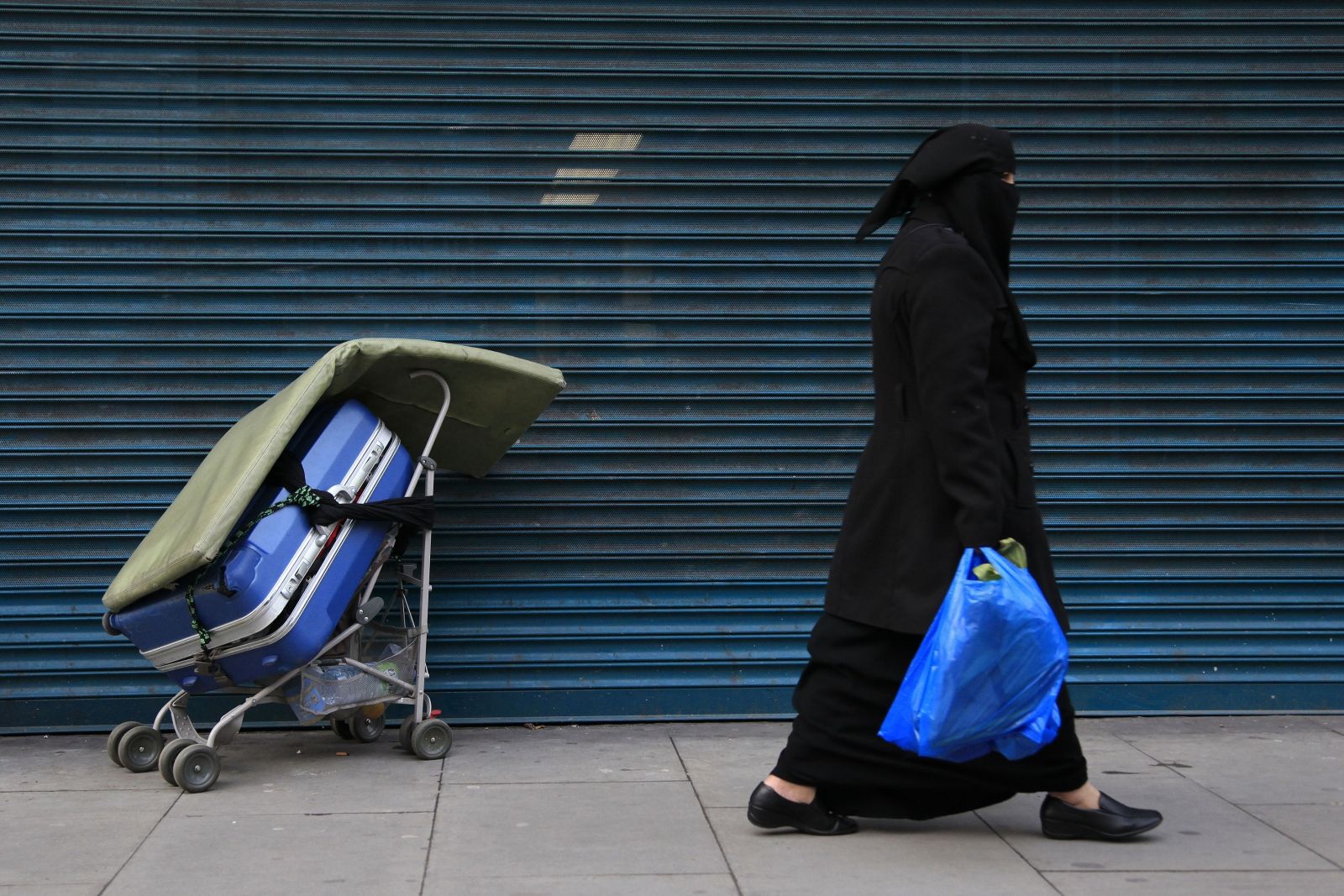
This article was originally published in The Conversation. Read the original article.
A British parliamentary committee recently discovered what many people in Muslim communities have known for ages—that Muslim women face discrimination on account of their gender, their ethnicity and their religion.
As the most disadvantaged members of the most socially and economically deprived communities in Britain, Muslim women suffer astronomical levels of unemployment and economic inactivity. In 2015 ONS figures showed only 35 percent of Muslim women aged 16 to 64 were employed. That compares with 69 percent of all British women in the same age range. We also learnt that 58 percent are economically inactive (not looking for work). That compares with 27 percent of working age women across the British population.
The committee also concluded that while Muslim women suffered a "triple penalty" on account of their gender, ethnicity and religion, it was the latter that poses the most barriers. Muslims face discrimination in many areas of public life but women are held back further because they are seen as passive, uninformed and uninterested in the world beyond their doorstep.
Muslim women, especially those wearing Islamic dress, represent what is considered a backward faith that disrupts western ways of life. Islam is also regarded as a barrier to their advancement outside the home because it stresses women's role as care givers and homemakers. It apparently compels them to cover their hair and face and excludes them from Islamic thought and governance.
Large numbers of Muslim women in Britain argue that it is the intersecting effects of Islamophobia, including public stereotyping and male-dominated interpretations of Islam from within Muslim communities or assumptions made by non-Muslims, which constrain them.
For some time, they have been seeking to fight back—particularly in the years following 9/11. Muslim communities have come under heavy surveillance and women have had to play different family roles. Wives, mothers, sisters of men charged with or imprisoned for "terrorist" activity have undertaken traditional male responsibilities. Others have been subjected to surveillance themselves.
They have become rapidly politicized and active in public arenas. They are involved in campaigns to counter Islamophobia and also patriarchal attitudes in their ethnic and religious communities.
The British government also courts Muslim women to act as "bridge-builders" between Muslim communities and majority British society. The Preventing Violent Extremism program, which ran between 2007 and 2010, for instance, encouraged Muslim women to play a greater role in civic life. The idea was to prevent extremism and promote Muslim integration.
Institutional representation
In 2010, three women identifying as Muslim were elected to the House of Commons. They were joined by another five in 2015. The number of Muslim women in local councils has also increased in the 9/11 era.
These elections marked the culmination of Muslim women's involvement in party politics in the 2000s. And while most of these women would stress that they represent all constituents regardless of gender, ethnicity, race or faith, many feel they bear responsibility for changing the way in which Muslim women are perceived. They also want to show that that they make a valuable contribution to British society. Some have also challenged the clan-based system within Muslim communities that promotes men as community and political leaders while excluding women.
Far larger numbers of Muslim women also participate in women's community organisations and NGOs today than 15 years ago. These organisations work not just on issues concerning Muslim women—empowering them to deal with oppressive cultural and religious practices—but also to build capacity among Muslim women. They provide women with the knowledge and skills needed to enter public life and the labor market.
Muslim women have also become active in street politics. In the 2000s, girls and young women were foremost participants in the Stop the War movement and more recently they've been involved in support for Syrian refugees.
They are countering male domination within their communities by challenging the way in which mosques are dominated and run in Britain by all-male committees. Some women's organisations are planning women-only mosques, while others have called for transparency in mosque governance structures. They are pushing for more women to be involved in making decisions.
So Muslim women are working hard to increase their presence in public arenas and break down stereotypes. That said, it is recognized that too many Muslim women still remain on the margins of society and the economy. State support is crucial in bringing them center stage.
However, it is important to show that Muslim women are not passive or isolated in the way that media representations suggest. They are subjects in their own right.
Khursheed Wadia is principal Research Fellow at theCentre for the Study of Safety and Well-Being at University of Warwick.
Uncommon Knowledge
Newsweek is committed to challenging conventional wisdom and finding connections in the search for common ground.
Newsweek is committed to challenging conventional wisdom and finding connections in the search for common ground.
About the writer
To read how Newsweek uses AI as a newsroom tool, Click here.








